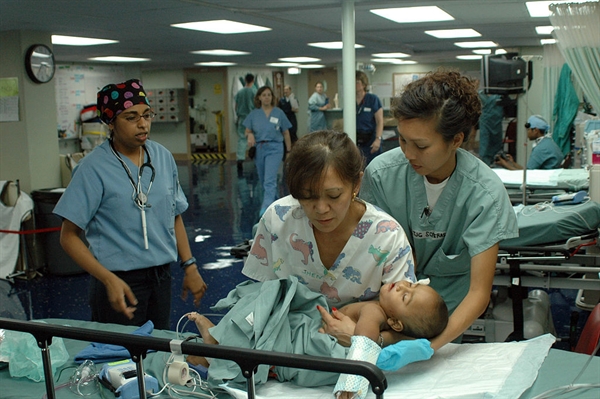Since the pandemic changed the world of healthcare, emergency nurses have stepped up even more to address crowded hospitals and the influx of critical care patients. For COVID patients, the emergency room is often the first stop before being admitted for additional treatment.
As an emergency nurse, every day brings challenges because every day is filled with a variety of emergencies—including waves of COVID-19 patients. Nurses must expect the unexpected and have the ability to stay calm in the midst of a crisis. If you’re considering becoming a nurse, you may have wondered what it’s like to work in the fast-paced environment of an emergency room. While every day is different, this is what you might encounter as an emergency nurse.
Task Assignments
Emergency nurses are often assigned to a specific task or unit for the day, such as triage, trauma, or minor emergencies. For example, the triage nurse will act as the ER’s gatekeeper, meeting incoming patients, performing an assessment and determining their next steps.
Patient and Physician Communication
ER nurses are an integral part of the healthcare team and can be the first point of contact for patients. They must be able to gather information that may be needed for a diagnosis, and they will likely need to relay this information to the rest of the healthcare team, including physicians. In addition, nurses may be asked to relay information to the patient’s family. As a result, nurses must be good communicators since they will be talking to a lot of people throughout their shift. They need to know how to ask questions effectively and how to listen for answers as well as watch for clues on what a patient may not say.
Downtime
The pace of an emergency room can vary, and there may be downtime after patients are moved from ER rooms to other parts of the hospital or are sent home. When it’s quiet, nurses may help restock supplies or prepare the unit for the next patients. They will also review reports and paperwork on the patients who were admitted or discharged.
Shift Length
In many facilities, nurses work 12-hour shifts. In the ER, however, there’s no guarantee that you’ll leave when your 12 hours are over. As is the case with emergencies, you may not be able to exit from a situation just because you shift is over. But, since the ER is often a fast-paced environment, the shifts can feel like they fly by, especially if the hospital has a high inflow of patients needing care.
Working as an emergency nurse is only one of many options available for experienced nurses. And you can work towards this exciting career by getting started on your nursing education at the Denver College of Nursing. Whether you’re just starting out or are looking to advance your nursing career with a specialized degree, we can help you gain the skills you need. Click here for more information or call us today at (800) 600-6604 and speak to one of our career counselors.


